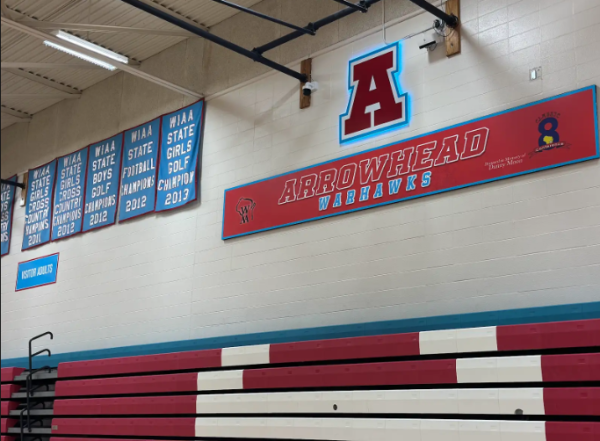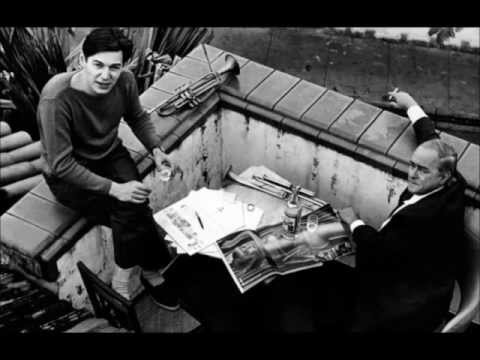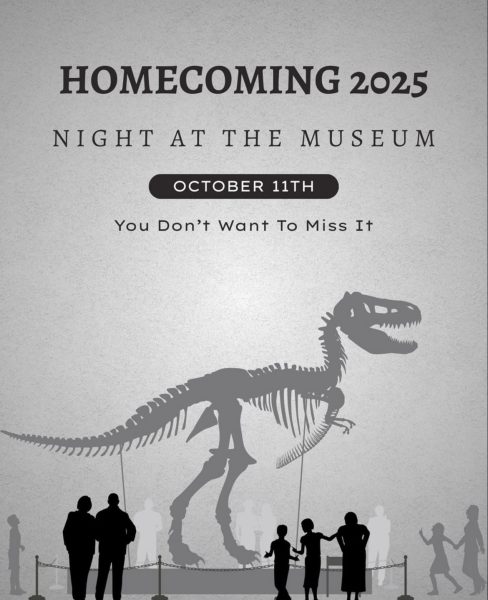Inside the Head of a Student with Autism
A student sits down during seventh hour of the day, beyond ecstatic to finally be away from the noise in his previous classes. His casual dress of jeans and a blue t-shirt matches the couch that he sinks into. Brick, a therapy dog, takes a seat next to him. The student begins to read, attempting to jot down notes. While he sounds like any normal eighth grade student, Joseph Seelig has one quality that sets him apart: he has been diagnosed with an autism spectrum disorder.
According to the National Institute of Mental Health, autism spectrum disorder (ASD), is a name for a group of developmental disorders which are placed on a spectrum of severity. While some people fall in the range of high functioning, others are affected more critically, and ASD takes a toll on their daily functioning. People with ASD often struggle to interact socially, as their communication skills are not as developed. Social cues can be difficult to understand. People with ASD tend to have repetitive behaviors, which become noticeable the more you spend time with them. Along with this, they often have specific interests and certain topics intrigue them more than others, such as Joseph’s love for video games and dinosaurs. And, as I told him, these qualities don’t make people with ASD any less wonderful.
The day before I spoke with Joseph, I went to his school (LIFE Entrepreneurial Middle School) to chat with his teachers and peers in the hope of gaining insight into his personality. I was told Joseph struggled with social skills in the past, but has recently become much more adept in communicating with others. Joseph’s teachers spoke highly of him. They said his interests varied throughout many subjects and that he would not shy away from telling me about his autism. They said he would actually make sure I knew about it.
The moment I walked in the classroom where I was interviewing Joseph, I knew we would connect. He was open about his disorder and ready to talk to me for as long as I was willing to sit. In fact, the first question I asked him was whether or not he knew the topic I was interviewing him about. He response was simply, “Yes, my autism.”
I was eager to find out more about him, so I began asking questions. When speaking of whether or not he enjoyed school, Joseph told me, “It depends on the subject. My all time favorite subject is science, second is math, and third is literacy. The only reason is, I don’t like how Beth [his literacy teacher] makes us jot our notes. I start reading and I cannot stop reading just to write down a note.”
This became a common theme with Joseph—his inability to put his thoughts down on paper. He said, “I am good at coming up with ideas. Like in literacy, I can come up with a bunch of ideas, just when I start to get them to paper, from here [he points to head] to paper, I just can’t. Should I write about that subject? Should I write this? No. Should I write this? Or this? Or this? And it just gets complicated.”
While he considers coming up with ideas his biggest strength, he said acting on those ideas is difficult. The more he talked, the more I saw ideas flying in his head. He spoke of a computer desk he wanted to build for his room and a YouTube channel he hoped to start. Without a doubt, Joseph has no trouble being creative.
However, different environments affect Joseph’s creativity and ability to learn. He explained that noise is something he struggles with. While he enjoys the end of the day (due to the quiet atmosphere), mornings are a different story. He said, “I don’t like personal finance. I liked it to begin with, until everybody in the class pretty much started to scream at the top of their lungs the intro to Biz Kids [a series that teaches students about personal finance].”
Despite this, Joseph says he has come to enjoy school, especially because of the school’s therapy dog, Brick.
Brick walked in when Joseph and I were talking, and Joseph explained that having a dog helps calm him near the end of the day. In terms of school work itself, Joseph says that one thing helps him: “Having a choice to do something…I think if I were to get a topic given to me, it would have been a lot harder to do.”
After getting the chance to speak with Joseph, I thought about what it would be like to attend my school, Arrowhead Union High School, while being diagnosed with ASD. Joseph’s brain works in a different way. While most of us are able to get thoughts from our brains onto paper, he cannot. While most of us can handle noisy environments, even if just for a small amount of time, he cannot. However, we are all human, and we are all here to support each other.
The first step, I believe, in making sure schools create a supportive environment for students with autism is to become more individualized. Getting to know each and every student as well as their strengths, weaknesses, interests, and disorders would allow for a more supportive and comforting environment for students with ASD. Once teachers know everything they can, they will be able to move forward in education for both students with ASD and those without.
The experience of meeting and speaking with Joseph is one that I will forever carry with me. He truly allowed me to see another side of autism—one I could not get without speaking directly to someone who has it. People with autism spectrum disorder are no different from you and me, and Joseph taught me that better than anyone could.









